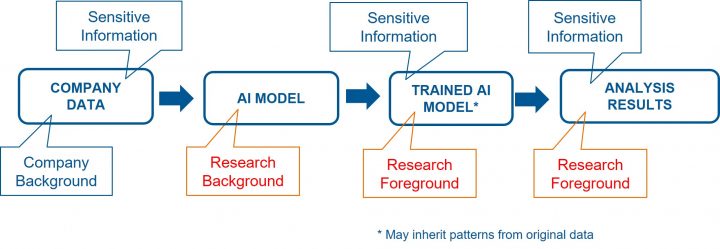Before granting access to company confidential data to project partners, conditions for data access and usage must be agreed upon from legal, GDPR, and cybersecurity perspectives between the parties. Due to the proliferation of artificial intelligence, there is a new need in legal documents to define confidentiality and ownership of trained AI models and analysis results.
In this blog post, we concentrate on the confidentiality issues of trained AI models and analysis results, which need more elaboration especially in collaborative research projects where there is no customer-supplier relationship.
The current blog (Part IV) will showcase basic principles that were documented on the formal data license agreement between a company and a research partner conducting the analysis in the publicly funded InnoSale research project. Previously in the series we have discussed use cases (Part I), stakeholders (Part II) and data wrangling (Part III). The next blog “Part V: Business Benefits”, will finalize the series. Blog serie can be found at https://www.innosale.eu/. Please also join our webinar 29.5.2024 14:00-15:30 Finnish time (13:00-14:40 CET), registration link.


